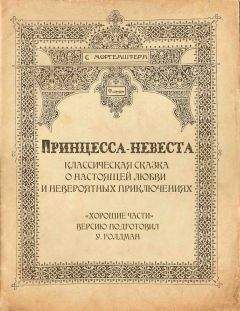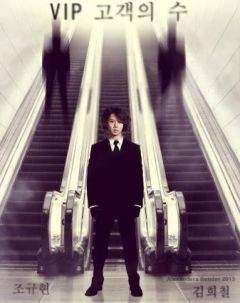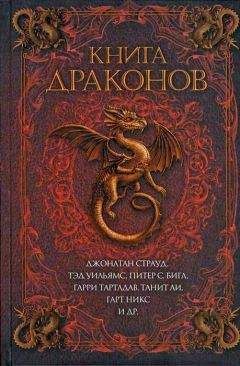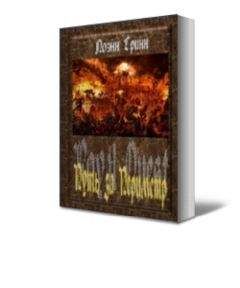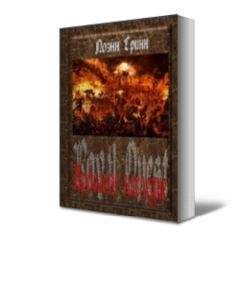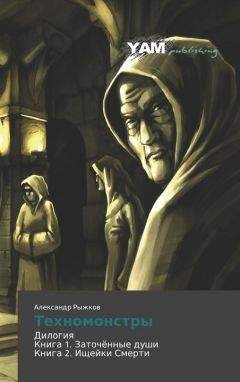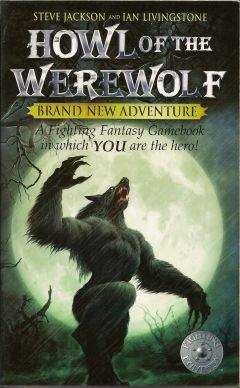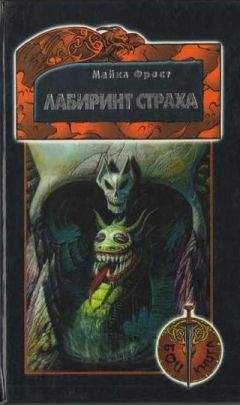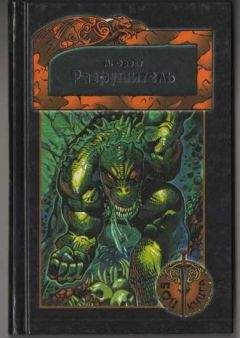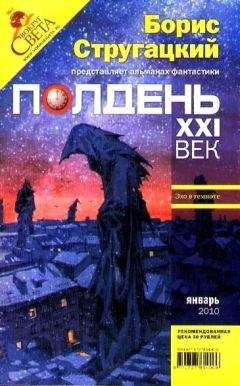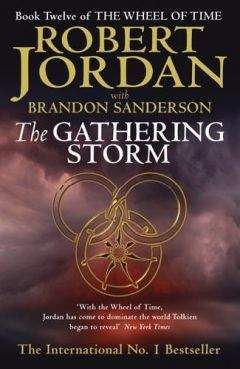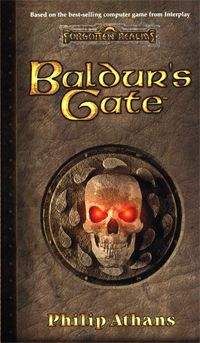Nancy - The Islands of the Blessed
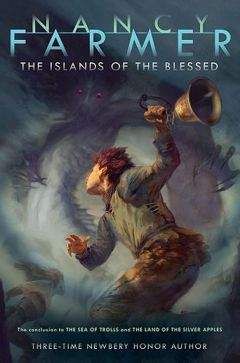
Скачивание начинается... Если скачивание не началось автоматически, пожалуйста нажмите на эту ссылку.
Жалоба
Напишите нам, и мы в срочном порядке примем меры.
Описание книги "The Islands of the Blessed"
Описание и краткое содержание "The Islands of the Blessed" читать бесплатно онлайн.
The crowning volume of the trilogy that began with The Sea of Trolls and continued with The Land of Silver Apples opens with a vicious tornado. (Odin on a Wild Hunt, as the young berserker Thorgil sees it.) The fields of Jack’s home village are devastated, the winter ahead looks bleak, and a monster—a draugr—has invaded the forest outside of town.
But in the hands of bestselling author Nancy Farmer, the direst of prospects becomes any reader’s reward. Soon, Jack, Thorgil, and the Bard are off on a quest to right the wrong of a death caused by Father Severus. Their destination is Notland, realm of the fin folk, though they will face plenty of challenges and enemies before get they get there. Impeccably researched and blending the lore of Christian, Pagan, and Norse traditions, this expertly woven tale is beguilingly suspenseful and, ultimately, a testament to love.
She prayed when she thought of it. She paced to and fro in the narrow space between the bed and the wall. The rest of the time she slept. Pangur Ban was at his wits’ end trying to find activities for her—there’s only so much petting a cat can endure. He brought her treats from the outside world. He raided the kitchen for pies, fruit, roasted birds…
Pangur Ban licked his lips and glanced at Thorgil.
Of course the monastery was no longer the luxurious place it had been before Father Severus arrived. Half the time the monks lived on bread and water, and self-flagellation was epidemic.
“Self—what?” asked Jack.
“The monks beat themselves with whips,” the Bard said. “It’s supposed to make them virtuous. I’ll never understand Christians.”
Jack found it difficult to understand too. He’d been knocked six ways to Sunday by Father, and all it made him was resentful.
Most important, Pangur Ban brought Ethne fragments of the outside world. He would drag in a vine covered with leaves, or a rose, or a mouthful of acorns. He brought her mice and small birds, and she’d begged him to take them away and free them. Once he brought her a dead mole, and she wept for the pity of it.
“That wasn’t nice,” objected Jack.
“I disagree,” said the Bard. “The worst thing that can happen to Ethne is that she loses her ability to feel. Then she will become all elf and soulless as they are. Sorrow is a part of life.”
“We can’t leave her in that prison,” Thorgil said.
“No, we can’t.” The old man gazed into the distance, going far beyond the monastery, the lake, or even the bright sky beyond. “Unfortunately, we have two problems. I must rescue Ethne, but I must also attend to the draugr. If the draugr emerges before I’ve found a solution, she’ll start killing again.”
They sat and looked down at the monastery. The ponies ambled closer and nudged Thorgil with their noses. Horses always favored Thorgil, Jack thought, even ones who’d never seen her before. Pangur Ban stretched out his long body and appeared to sleep, but the tip of his tail moved ever so slightly. “I’ll have to deal with the draugr first,” the Bard finally decided. “I know Ethne is suffering, but I hope she can endure a while longer. I dare not allow the draugr to emerge.”
He picked forget-me-nots and wove them into a garland. Laying a hand over them, he chanted something in a language Jack didn’t know. But Pangur Ban did. The cat rolled on the ground and purred ecstatically, finally coming to rest at the Bard’s feet. The old man wound the garland around the cat’s neck. “I have called life into these flowers,” he said. “They will not fade for many a day.”
Pangur Ban sped away.
“What language was that, sir?” Jack asked. “You’ve often used it to work magic.”
“It is the speech they use in the Islands of the Blessed,” said the Bard. “I learned it as an apprentice.”
“But Pangur Ban understands it.”
The old man gazed after the cat, who was just then reaching the monastery door. A monk bent down to pet him and received a crisp bite. The cat fled through the door. “Remember my telling you about how dangerous it was to trade places with an animal’s spirit?” the Bard said.
Jack nodded. He remembered how the old man had hidden in the body of a crow and been unable to leave.
“The longer you’re in an animal’s body,” the Bard said, “the more you forget about being human. They didn’t teach the skill at the School of Bards until the final year, and some apprentices never made it out of their animal’s body. Pangur Ban was one.”
“He’s a bard?” cried Jack.
“A failed one. You have to be very sure of your own identity before attempting such a feat. I always suspected that Pangur preferred being a cat rather than a human. There are no responsibilities and endless chances for fun, and he was always a happy-go-lucky lad.”
“But still… never to be human again.” Jack was appalled. “What happened to his body?”
“It was inhabited by the cat’s spirit and wandered away. To outsiders the cat/lad appeared to be simpleminded, but of course he wasn’t. I heard that he became a rat-catcher in Dublin and was very good at it.”
Thorgil called the ponies, and Jack packed up the remnants of the lunch. He mounted, settling the awkward bundle containing Fair Lamenting before him. “Now comes the hard part,” said the Bard.
As they drew near the monastery, Jack noted the extensive fields and newly planted orchards all around. Monks were busy weeding, setting up trellises, and digging seedbeds. He recognized some of them. They were thinner and better-muscled than before, and it was clear that Father Severus’ discipline had been good for them. The boy also recognized the former criminals by their missing ears and slit noses. These seemed to have been freed from slavery, for they were dressed as monks and were working alongside the others.
Yet the faces were as shifty and brutal as before. The monks had never been much more than thieves, and the criminals had been condemned murderers. Whatever sermons they endured didn’t seem to have reformed them.
“What’s going to happen here, sir, if Father Severus is removed?” Jack said in a low voice.
“An excellent question,” the Bard replied. “I’d hate to see this lot run wild again.”
They were shown into the courtyard Jack remembered from his first visit. It had been repaired after the earthquake, but the fountain barely trickled. Instead of rosebushes and lavender, the yard was covered with gravel, and the pleasant wooden benches had been replaced with cold, hard stone.
“Severus does like his penances,” remarked the Bard, lowering himself carefully.
They waited. The abbot—Father Severus—was meditating, they were informed by a villainous-looking monk with a withered hand. Jack knew the man had endured a trial by ordeal and had been forced to carry a glowing piece of iron for nine feet. When the wound festered, he’d been found guilty.
“His Future Sainthood always spends the afternoon on his knees,” the monk said. “That’s after a good fast in the morning and a light scourge for lunch.”
“What’s a scourge?” Jack said after the man left.
“A special kind of whip,” the Bard said. “It leaves deeper scars.”
Jack felt repelled and disgusted. What kind of madness was going on here? It was impossible to believe that these monks had any kinship with gentle Brother Aiden or St. Cuthbert.
“The Northmen endure pain gladly,” Thorgil said, “yet they do not inflict it on themselves. I see no honor in such wounds.”
“You’re correct there, shield maiden,” said the Bard.
The sun had inclined to the west and shadows had begun to fill the courtyard when Father Severus strode in. He was as thin as ever, but underneath, Jack sensed an iron strength. The boy looked for the kindness he’d seen in the dungeons of the elves and found it missing.
“You! Wizard! Why have you come?” the abbot said.
“And a very good afternoon to you too,” said the Bard. “Do you remember Jack and Thorgil?”
Father Severus cast a piercing look at the two. “Oh, yes. The pair that brought down Din Guardi. It’s back again, you know. My monks built it.”
Jack felt uneasy at the words my monks.
“With help from the Lady of the Lake,” said the Bard.
“That vile witch,” swore the abbot. “It should have been a proper fortress, and her mincing sorcery turned it into a playground.”
“It isn’t as though Brutus is a warrior,” the old man remarked.
“He does nothing. Nothing! Parties all night, sleeps all day. If anything needs doing in Bebba’s Town, the people come to me.”
“I’m sure you tell them what to do,” the Bard said.
Father Severus glared at him. “So what if I do? These people need a firm hand, and most of them are pagan backsliders. I’ve gotten rid of naughty practices like Yule singing and dyeing Easter eggs, but they still sneak into the woods for May Day. Well, why are you here? I have confessions to hear and penances to hand out.”
Jack couldn’t believe the change that had come over Father Severus. What had happened to the man who’d sheltered them in Elfland and given them hope when all seemed lost?
“I, too, have important business,” the Bard said quietly. “Something to do with mermaids.”
For an instant Father Severus looked startled, but just as swiftly he recovered. “That matter was concluded years ago. It was bad judgment on my part, but no harm was done.”
“Much harm was done,” said the Bard. He recounted the arrival of the draugr and the havoc she had wreaked.
“How can you expect me to believe that tale,” the abbot scoffed. “A wolf slaughters a lamb, a cow bellows in the woods, and everyone panics.”
“I saw the draugr. So did Jack.”
“Oh, that’s a fine source of information—a wizard and his apprentice.”
Jack was beginning to dislike Father Severus. “Brother Aiden believes in her too,” he broke in. “He says a wild animal wouldn’t kill things without eating them.”
The Bard put his hand on the boy’s shoulder. “That’ll do, lad,” he murmured. He looked up at the abbot. “Severus, you were responsible for the mermaid’s death. Did you think there’d be no consequences? She has appealed for justice before the councils of the nine worlds.”
“This gets better and better.” Father Severus laughed, a hollow, cheerless sound, and Jack remembered that he had never been good at laughing. “There are only two worlds: this one and the world to come. Now I’m supposed to worry about a creature with no soul coming back from the dead. She complains to councils that don’t exist, and a wizard with nonexistent powers comes along to threaten me.”
“You take that back!” Jack shouted. The Bard held out his staff, and the boy felt a wave of heat.
“Stop wasting my time and run along,” snarled the abbot.
“You leave me no choice,” the Bard said quietly. “Jack, unwrap Fair Lamenting.”
The boy’s hands trembled as he put the bundle on the floor and fumbled with the cords binding it. Thorgil bent down and cut them with her knife. “This will be fun,” she whispered. Jack wished he were as calm about calling up the draugr, but then, he’d actually seen her and Thorgil hadn’t.
“Fair Lamenting,” murmured Father Severus, and for once he didn’t look so confident. “It has been long since I heard it. If it hadn’t been St. Columba’s sacred bell, I would have sunk it in the depths of the sea.”
“You would have done better to sink yourself,” the Bard snapped. “Last chance, Severus. Shall we discuss how to deal with the draugr, or should Jack ring the bell?”
The abbot drew himself up, tall and proud. The man had courage, Jack conceded unwillingly. He’d faced down Northmen and the Elf Queen. He’d offered himself as a sacrifice in place of Pega. He had confronted Hell itself, and if he’d fallen to his knees in terror, it didn’t lessen his nobility. They had all cowered.
“There is no draugr,” Father Severus said. “I am a Christian. I do not believe pagan lies.”
The Bard nodded. Jack quickly unwrapped the layers of cloth, and the object within rolled over the floor with a clanging and clanking.
It was a small copper cauldron with a stone inside.
Father Severus barked a startled laugh. He bent over with mirth, slapping his knees with his hands. “By blessed St. Bridget, there’s no Fair Lamenting, either! This is a fine joke, wizard! Did Brutus put you up to it?”
The Bard, Jack, and Thorgil could only stare, thunderstruck, as the cauldron came to a halt against a wall.
“Nothing to say?” the abbot jeered. “Then be off with you!” He clapped his hands, and a pair of hefty monks came through the door. The Bard, Jack, and Thorgil left with as much dignity as they could muster.
Chapter Nineteen
FIND TANNERS
“The Tanners did it,” Jack said at last, after they had traveled several miles. The Bard had gone ahead and the air around him had swirled, and his pony had laid back its ears in fear. But finally the air cleared. The pony’s ears went up, and Jack dared to break the silence. “We know they’re thieves. No one else would have done it.”
“They stayed behind when we camped on the beach,” Thorgil said. “They claimed to be afraid of Schlaup, though anyone with sense could see his good character. I wonder what else the Tanners took.”
“I should have brought Fair Lamenting ashore with me,” said Jack. “The minute Ymma and Ythla thought they were alone at the farm, they went through everything. I should have known they’d do the same thing on the ship.”
“I don’t blame you, lad,” the Bard said. “I was also entirely too trusting.” They stopped at a flowery meadow beside a rushing stream. Thorgil took off her boots and led the ponies into the water, where they drank noisily and sloshed their hooves. After a while she led them out to graze. The Bard broke the seal on the flask of mead and drank morosely.
It was getting close to sunset. Long shadows stretched across the grass and swallows dipped and fluttered in the upper air. “Mrs. Tanner said she was going to her brother,” Jack said. “Perhaps King Brutus could help us.”
“Brutus couldn’t find his crown with both hands,” said the Bard. “There are a thousand people in this town—farms and houses everywhere. We don’t know what her brother does for a living; to go by her, he’s probably a pickpocket. We don’t know what he looks like.”
“The arrival of a widow with two daughters can’t be that common,” Jack pointed out. “King Brutus could send out searchers. In time—”
“In time! We don’t have time, lad. If someone rings that bell, we’ve had it. Which brings me to the question, how did the Tanners know where it was?”
“Ymma and Ythla were always lurking about,” Jack said bitterly. “They saw me carry a mysterious bundle to the ship and decided to look inside. They knew enough to substitute one of Egil’s copper cauldrons.”
“I hate the sight of that wretched pot,” said the Bard, swigging more mead. Jack had brought the small cauldron back with them. It belonged to Egil, after all, and was valuable. It was a rich red-gold color, reflecting light from a dozen surfaces made by the artisan’s hammer. Egil said it had been made by men burned dark by the sun, the same ones who had traded merini sheep to him.
Thorgil returned from tending to the ponies and settled herself on the grass. She, at least, was in a good mood. The long ride and misadventure at the monastery had amused her. Her cheeks were rosy and the sun had brought out a spray of freckles on her nose. She was as finely dressed as a young knight. But where a year ago she had been easily mistaken for a lad, subtle changes had occurred. Her waist was more defined, her mouth was softer, her chest—
Подписывайтесь на наши страницы в социальных сетях.
Будьте в курсе последних книжных новинок, комментируйте, обсуждайте. Мы ждём Вас!
Похожие книги на "The Islands of the Blessed"
Книги похожие на "The Islands of the Blessed" читать онлайн или скачать бесплатно полные версии.
Мы рекомендуем Вам зарегистрироваться либо войти на сайт под своим именем.
Отзывы о "Nancy - The Islands of the Blessed"
Отзывы читателей о книге "The Islands of the Blessed", комментарии и мнения людей о произведении.





